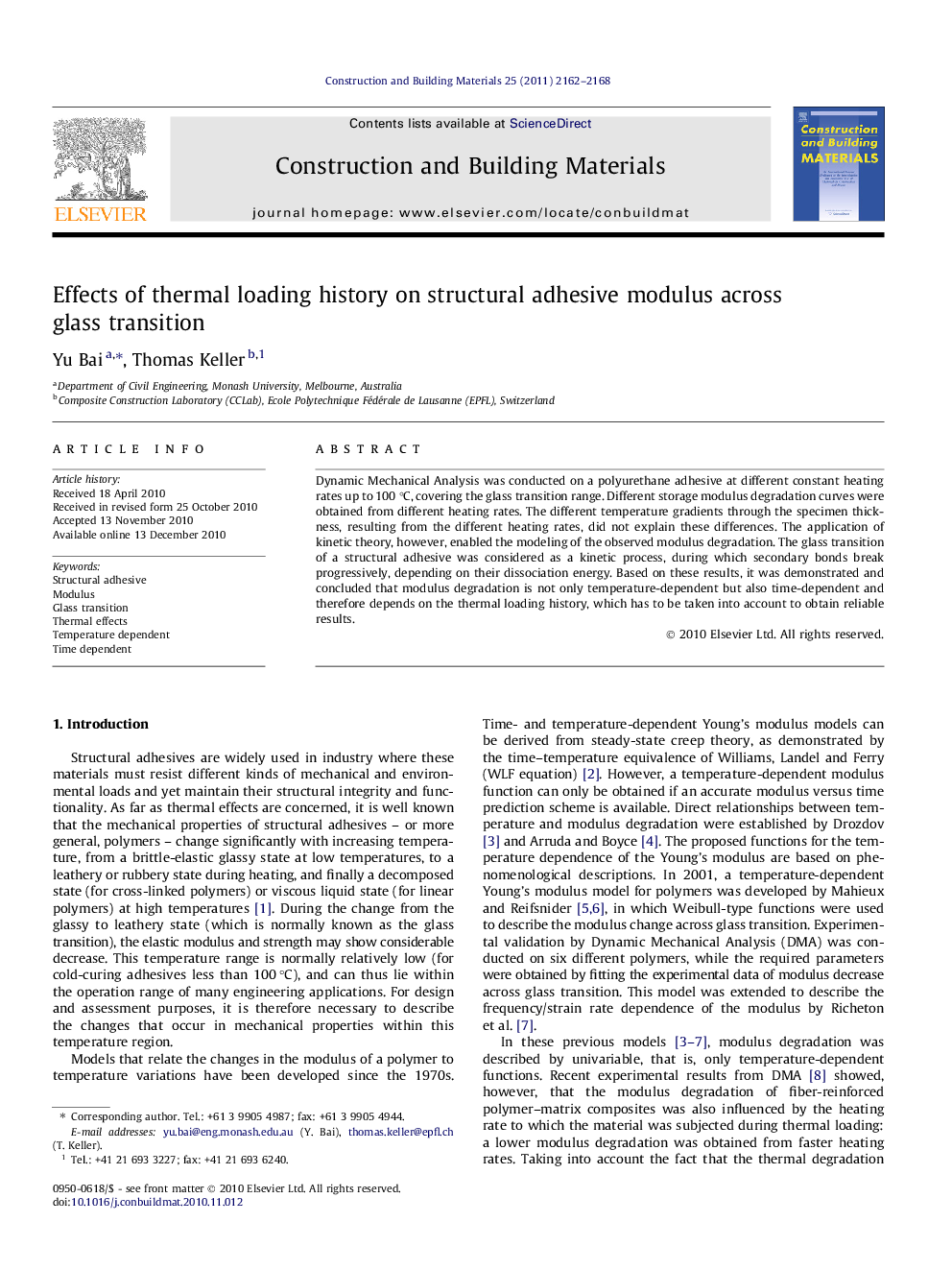| Article ID | Journal | Published Year | Pages | File Type |
|---|---|---|---|---|
| 259759 | Construction and Building Materials | 2011 | 7 Pages |
Dynamic Mechanical Analysis was conducted on a polyurethane adhesive at different constant heating rates up to 100 °C, covering the glass transition range. Different storage modulus degradation curves were obtained from different heating rates. The different temperature gradients through the specimen thickness, resulting from the different heating rates, did not explain these differences. The application of kinetic theory, however, enabled the modeling of the observed modulus degradation. The glass transition of a structural adhesive was considered as a kinetic process, during which secondary bonds break progressively, depending on their dissociation energy. Based on these results, it was demonstrated and concluded that modulus degradation is not only temperature-dependent but also time-dependent and therefore depends on the thermal loading history, which has to be taken into account to obtain reliable results.
Research highlights► Thermal loading history affects adhesive modulus decrease across glass transition. ► The effects from the involved temperature gradient are insignificant. ► The application of kinetic theory enables the modeling of modulus decrease. ► The proposed model is applicable for different structural adhesives or polymers.
